Even as the movie industry continues to recover from the pandemic’s debilitating effects, the ongoing story of film is not about loss of quality. This was a year filled with cinematic delights from every part of the world, with first-time filmmakers doing everything they could to shock audiences, and old masters delving into their darkest reminiscences for indelible works of memoir. I remain concerned by the fact that most of my favorite 2022 films didn’t come from major Hollywood studios—an industry that once prided itself on producing a breadth of stories currently seems too focused on the biggest and loudest—but this was still an unforgettable year.

10. Murina (directed by Antoneta Alamat Kusijanović)
A razor-sharp debut from the Croatian filmmaker Kusijanović, Murina is a domestic drama set on the stunning shores of the Adriatic. It’s centered on an inscrutable teenager, Julija (Gracija Filipović), who’s a whiz at spearfishing for eels but a destabilizing presence in her household, clashing with both her father and mother as she yearns for more independence. Hope arrives in the form of the businessman Javier (Cliff Curtis), who is looking to buy her father’s land, and Kusijanović adeptly dials up the tension as Julija flirts with Javier in an effort to be whisked away from her provincial existence. The film looks gorgeous, its taut plot is perfectly structured, and the lead performance (another debut) is remarkable—it’s a gripping hit that you can recommend to anyone.
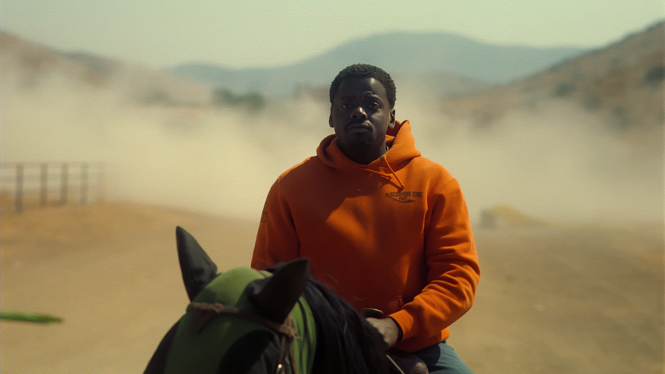
9. Nope (Jordan Peele)
With every film Peele directs, his storytelling ambitions grow, and he has not lost any willingness to take risks with the budgets he’s given and tell stories about the kinds of characters Hollywood rarely puts on-screen. This would be refreshing in any period, but it’s particularly bracing in 2022, when major studios have drifted away from originality. Nope courses with anger and confusion over how people see and process terrible things. Yes, it’s about a ragtag bunch of film-industry castoffs chasing a UFO around the California mountains with cameras, but it’s a horror film that manages to cleverly interrogate the genre without sacrificing the thrills.
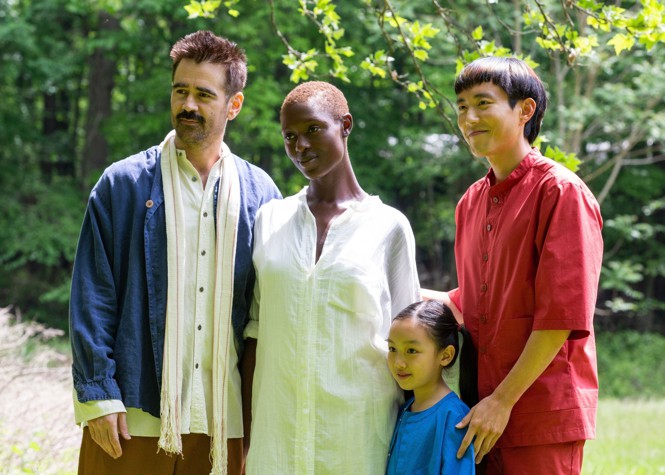
8. After Yang (Kogonada)
I have a major weakness for small-scale science fiction, tales of robots exploring higher consciousness, and the work of Colin Farrell (who was also incredible in The Banshees of Inisherin this year). So After Yang was practically made for me, yet still, the director Kogonada’s second feature exceeded my expectations, finding new life in the familiar tale of a malfunctioning android. Buoyed by Kogonada’s whisper-quiet storytelling sensibility, After Yang delves into a future that’s neither dystopian nor utopian, in which a family is shattered by the loss of Yang (Justin H. Min), who is both a nanny and an artificial son of sorts to Jake ( Farrell) and Kyra (Jodie Turner-Smith). The emotional revelations build slowly but land with a thunderclap. (It also has the single best opening-credit sequence of any 2022 film.)
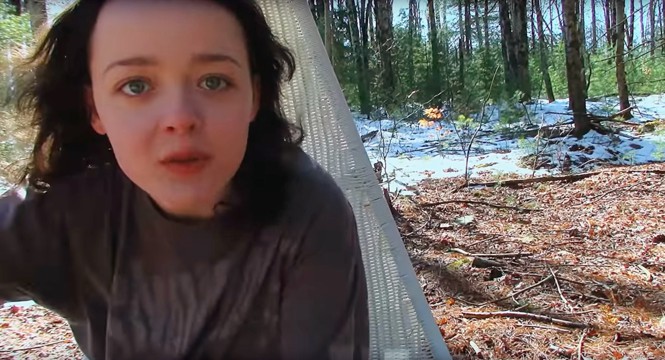
7. We’re All Going to the World’s Fair (Jane Schoenbrun)
A film that feels like it crawled out of some dark corner of the internet, Schoenbrun’s debut narrative feature is one of the best movies I’ve ever seen about the experience of being too online—of clicking one page too deep or watching one video too many. It’s a quiet but still brain-curdling and frightening contemporary folktale about a lonely teenager named Casey (Anna Cobb), who embarks on an inscrutable viral phenomenon called the World’s Fair Challenge. Through Casey’s laptop footage and videos of other “players” around the world, Schoenbrun documents the way a virtual experiment can take on terrifying weight and drive users to unravel in unpredictable ways. In a year of great debuts, Schoenbrun’s is the best.
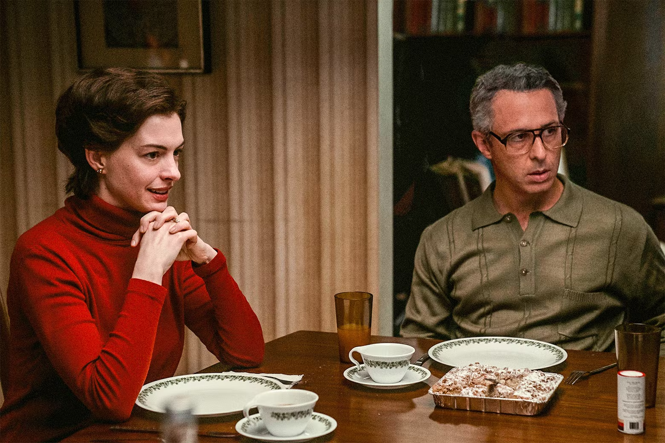
6. Armageddon Time (James Gray)
Armageddon Time is a haunted, melancholy vision of the recent past from one of America’s great directors, whose last two wonderful features took him deep into the rainforest and beyond the rings of Neptune. Here, Gray returns to the outer boroughs of New York City, of which he might as well be the cinematic poet laureate, and uncorks some of his most bittersweet memories of adolescence. Armageddon Time follows a rebellious Jewish sixth grader named Paul (Banks Repeta), an artistic kid who lives to disappoint his middle-class Queens family. So much of the film is constructed from sharp little vignettes of recollection, such as Paul ordering Chinese food in the middle of his mother’s bland dinner, but it builds to something more ominous—a warning about the rising climate of political greed in the 1980s, and the speed with which high-minded liberal ideals can crumble in the face of it.
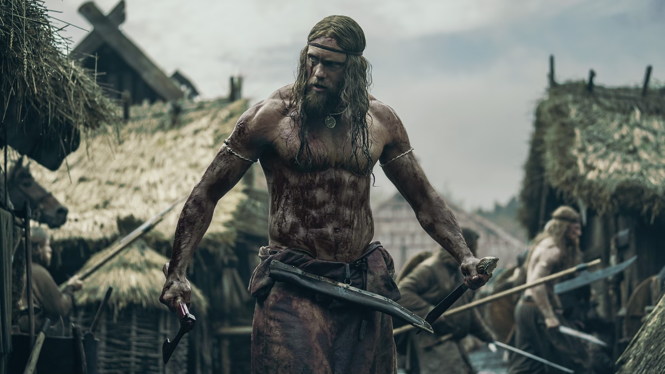
5. The Northman (Robert Eggers)
I would not thrive in Viking times—if someone launched a spear at me in battle, I likely could not catch it mid-air and chuck it back, as the warrior-prince Amleth (Alexander Skarsgård) does in Eggers’s rip-roaring adventure. But the power of The Northman lies in how remarkably real its muscular action sequences feel, and in how deeply invested I was in the legendary tale of a Viking prince stripped of his throne and sent on a lifelong mission of revenge. Eggers’s prior films (The Witch and The Lighthouse) blended verisimilitude and nightmarish magic, and The Northman accomplishes that on a blockbuster scale, making an ancient story of revenge (one that helped inspire Shakespeare’s Hamlet) feel fresh.
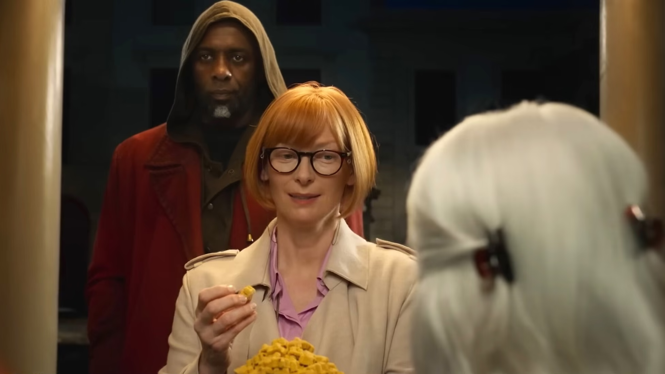
4. Three Thousand Years of Longing (George Miller)
The first film from the Australian legend Miller since his Oscar-winning Mad Max: Fury Road, Three Thousand Years of Longing came and went this summer with barely any attention at the box office, but it’s ready to be discovered by a bigger audience. The story pitch is strange, for sure: A buttoned-up professor (Tilda Swinton) accidentally summons a sensuous genie (Idris Elba) to her hotel room and persists in learning about his very dramatic, millennia-long life, only to fall in love with him along the way. But Miller’s film succeeds because the chemistry between its two leads feels lived in despite the fantasy atmosphere, and the stories that Elba’s djinn unfurls are wildly different in tone, jumping from violent palace intrigue to swooning romance to bizarre comedy. It builds to a finale that actually has something to say about the buzzing anxiety of modern life; leave it to Miller to find new angles of our strange modern condition decades into his career.
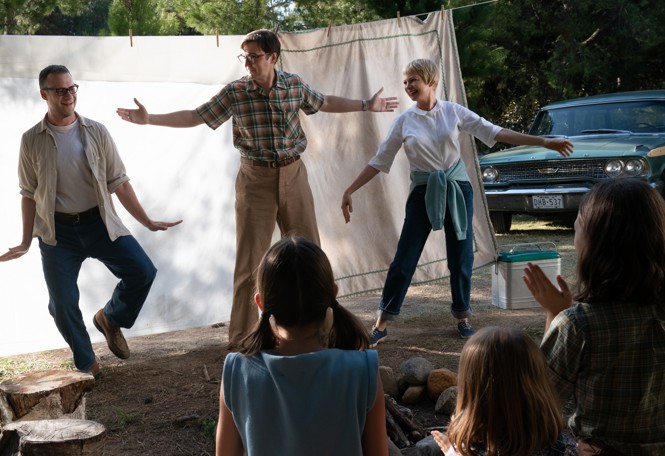
3. The Fabelmans (Steven Spielberg)
When I first heard that Spielberg was making a semi-autobiographical film about his adolescence, I expected soaring memories of his filmmaking sparking to life—and The Fabelmans, which follows young “Sammy” and his family, has plenty of that. His sisters dress up as toilet-paper mummies and charge the camera, he makes a war film that offers the first glimpse of maximalist Hollywood pathos, and he uncovers an ingenious way of depicting gunshots in his teenage cowboy flick by poking holes in the tape. But what’s so striking about The Fabelmans is its bitter honesty—about Spielberg’s parents’ divorce, his role in it, and the way his filmmaking obsession shaped the course of their lives. It’s a stark work—wrapped up in the entertaining package he always provides.
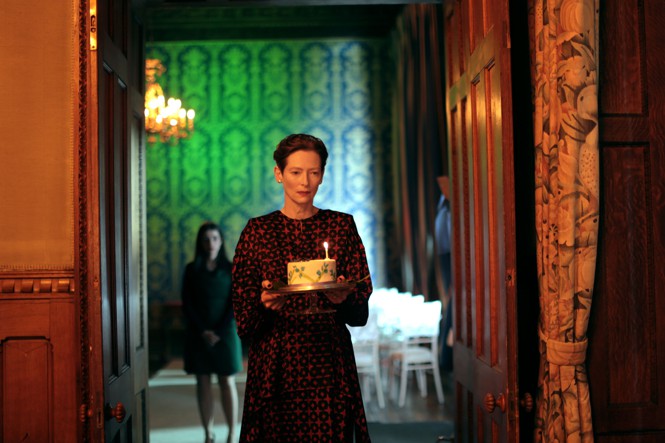
2. The Eternal Daughter (Joanna Hogg)
A stunning semi-sequel to her two Souvenir films, The Eternal Daughter once again sees the British director Hogg plumb her life for a story that blurs the boundaries between truth and fiction. The Souvenir (parts one and two) focuses on her younger days as a film student, but The Eternal Daughter is a ghost story of sorts, about a filmmaker (Tilda Swinton) who goes to a hotel in an old English estate with her aging mother (also played by Swinton) and discovers that they’re the only guests there. The estate has some family significance and stirs up old memories, as well as some more plainly supernatural visions. But the most spectacular sight is Swinton acting across from herself, fleshing out a family dynamic through whispers, glances, and awkward dinner-table chat.
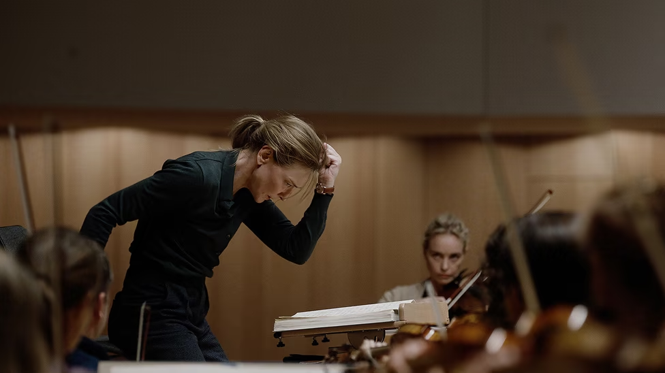
1. Tár (Todd Field)
To know Lydia Tár is not to love her, exactly, but the mercurial conductor is impossible to stop thinking about. Field’s film, his first in 16 years, introduces us to a fictional celebrity at the top of the classical-music world, who, when we meet her, is lecturing a Lincoln Center audience about her total command of tempo. Tár ends with her in quite a different scenario, and the route it charts for her downfall is remarkable and unpredictable, unwinding this tightly strung powerhouse and marveling at how her life falls apart. This is the most commanding piece of cinema I’ve seen this year by far—one that demands that the audience pay attention to the corners of every frame while it showcases an unforgettable performance from Blanchett. Even in a year of involving and wonderful cinematic surprises, it was destined to be my No. 1.
Honorable mentions: Top Gun: Maverick, Barbarian, The Banshees of Inisherin, Decision to Leave, RRR, Babylon, Return to Seoul, Aftersun, All the Beauty and the Bloodshed, Crimes of the Future

